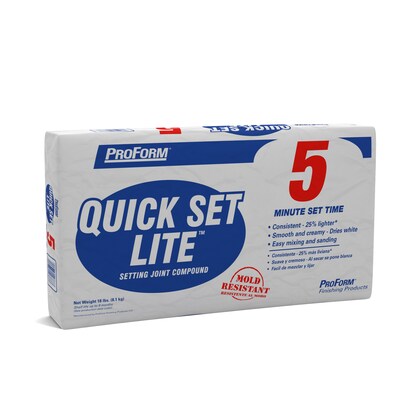
It doesn't matter if your walls are professionally or home-made, tiling onto drywall will add life and character to them. Be aware of these things before you start any project.
Tiling Drywall: How to do it, Tools & Tips
You can tile over drywall anywhere in your home, even bathrooms. It is generally not recommended to tile over drywall in bathrooms. This can cause moisture to seep into the wall and cause it to deteriorate. Instead, you can use a cement board or tile backinger for these wet areas.
Preparing Drywall For Tile
To prepare a wall for tiling, you must remove the faceplates of any outlets and light switches. This will make it much easier to clean your surface before you start applying tiles. Also, check for cracks or holes in the wall. This will stop your tiles from sliding off the wall and causing harm to your home.

Next, sand down the drywall. This will remove any leftover mastic or adhesive and ensure that the surface is smooth and ready for your tiles. Afterward, coat the wall with joint compound or drywall mud and let it dry.
The primer should then be applied to the walls. This will help protect it from moisture and make it easier for the mortar to bond. Then, use a trowel or a thin coat of thin-set mortar on the drywall to evenly spread it.
Putting Tile On Drywall: The Method and Tools
When tiling on the drywall, it's a good idea that you install the tiles in sections. This will allow you to use the tiling spacers to keep each tile evenly separated from all of the others. You can also plan the layout and cut the tiles to size before you begin tile.
How to Attach Tile to Drywall: The Method and Tools
Before you apply tile to drywall, sand it first. This will give your mortar a stronger grip and help you keep your tiles in place. Before you start tiling, it is a good idea for primer sealant to be applied to the drywall.

Once you have completed the above steps, it is now time to start tiling walls. This can be a daunting task, but it does not have to be as long as you take your time and do it correctly.
What Mortar should I use?
Use thin-set mortar to tile drywall. This cement-based mortar can be used to tile a wide range of tiles. However, a mastic or thin-set mortar can also be used. This mortar will not tolerate humidity and is not suitable for use in moist areas.
You can also paint the drywall before you start tiling to help it adhere better to the tile and make it more resistant to scratches. To ensure that the tile sticks, sand it well after you have painted it.
FAQ
How much does it set you back to renovate your house?
Renovations can cost from $5,000 to $50,000. Renovations can cost homeowners anywhere from $10,000 to $20,000
Is it better to remodel an older house than build a brand new one?
There are two options available to you if you're considering building a home. A pre-built home is another option. These homes are ready to be moved into and have already been built. A custom-built home is another option. To build your dream home, you will need to hire an architect.
How much time and money it takes to design and plan a new house will affect the cost. Because you will likely be doing most of the work yourself, a custom home can require more effort. But you still have control over the materials you choose and how they are placed. It may be easier to find a contractor who is skilled in building custom homes.
A new home will usually be more expensive than a renovated home. This is because you will have to pay more for the land as well as any improvements that you make to it. Permits and inspections are also required. The average price difference between a new home and one that has been renovated is between $10,000 and $20,000.
Do I have to renovate my entire house?
Do it yourself - you'll save time and money.
It doesn't matter how much you love DIY, there are times when you simply cannot do it yourself. There may be too many variables involved for you to control.
An example: If your house is older than you think, it might be that the wiring is unsafe. You will need an electrician to inspect and make sure that your system is reliable and safe.
Be aware that structural damage might be too costly for you to repair during the renovation.
In addition, you might not have the tools necessary to complete the job properly. You will need a special tool called the plumber's snake to clean clogged pipes if you plan to install a kitchen sink.
There are plumbing codes that will require you to hire a licensed plumber for your project.
The bottom line is that you need to know exactly what you are capable of doing before you embark on such a big task.
If you are unsure whether you can tackle the job yourself, ask for help from friends and family members who have done similar projects before.
They can help you determine the right steps and where you can find out more.
Can I rent a dumpster?
After completing a home renovation, you can rent an dumpster. Renting a dumpster is a great way to keep your yard free from trash and debris.
What should I think about when buying a house?
You should ensure that you have sufficient funds to cover the closing costs of your new home before purchasing it. You might consider refinancing your mortgage if you don't have enough money.
How can I find a reliable contractor?
Ask your family and friends for recommendations when choosing a contractor. Also, look at online reviews. Check to make sure the contractor has experience with the type of construction you are looking for. Get references from other people and review them.
What should I do if I want to hire an architect/builder?
You may find it easier to hire someone else to complete your renovations if you own the home. But if your goal is to buy a house, hiring an architect/builder will ensure that you get the home you desire.
Statistics
- A final payment of, say, 5% to 10% will be due when the space is livable and usable (your contract probably will say "substantial completion"). (kiplinger.com)
- The average fixed rate for a home-equity loan was recently 5.27%, and the average variable rate for a HELOC was 5.49%, according to Bankrate.com. (kiplinger.com)
- Design-builders may ask for a down payment of up to 25% or 33% of the job cost, says the NARI. (kiplinger.com)
- Rather, allot 10% to 15% for a contingency fund to pay for unexpected construction issues. (kiplinger.com)
- Most lenders will lend you up to 75% or 80% of the appraised value of your home, but some will go higher. (kiplinger.com)
External Links
How To
5 Things You Should Know Before Starting Your House Renovation
-
Is this something you really want? If you're planning on embarking on major home improvement projects like renovating your kitchen, bathroom, or building a brand new house, it's certain that you'll need to have some assistance. You might reconsider if you're not confident enough to handle such a huge task on your own. It will take up much of your time and money. There won't be any real benefits. Instead, you can hire someone who knows their stuff to help. They'll save your time and make it easy for you to have a wonderful place to call home.
-
How much should I spend? This is a common question, but it can make renovations more expensive. This is because most of the cost will be recouped at the end. If you have a budget in place, stick with it. A lack of a budget could mean that you end up spending a fortune and getting nothing in return.
-
Do I choose to hire professionals or DIY? - Although there's no right answer, we would recommend hiring professionals if you have the means. You can trust them to provide you with advice and guidance on how to proceed with your job. They can install the plumbing correctly and make sure that it is done safely. DIY projects require lots of trial and errors, which can mean you'll have many lessons to learn. You will also need to deal with the many issues that arise during the process.
-
Are you able to afford it? - Don't underestimate what a renovation will cost. Even if you believe you can handle it yourself, it might be necessary to borrow money from your family or friends just to cover the costs. You should also consider the cost of selling your property if you plan to move soon after the renovations are completed.
-
Where should I begin? There is no wrong or right place to start when it comes time to choose where to begin. But we suggest you choose something that you enjoy working on. It will motivate you to work harder and reduce procrastination. Avoid areas that require constant maintenance. If you have to deal with dirt and dust, don't try to redecorate the living room.